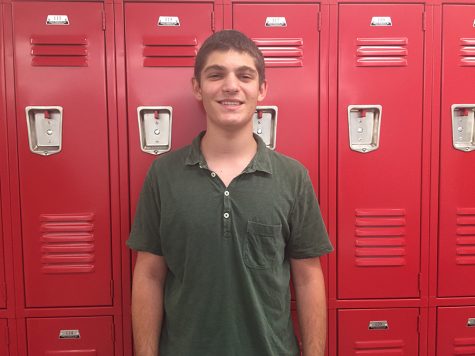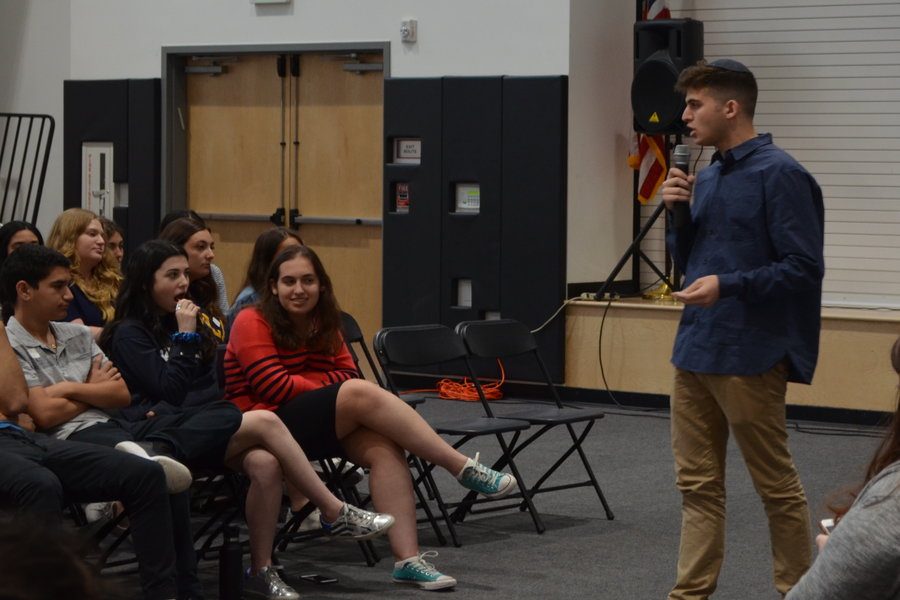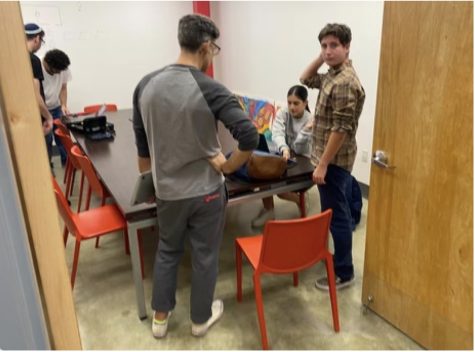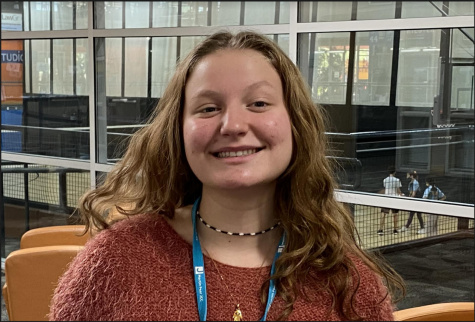Agenda Chair will be chosen in new ‘instant runoff’ election, committee decides
CHAIR: In his last week as head of the Agenda committee, Bennett voted in favor of instant runoff voting, citing its efficiency and representation in comparison to other voting systems.
UPDATED: Maia Zelka and Ilan Bouskila have withdrawn from the race for Agenda Chair. Ilan withdrew earlier this week, and Maia withdrew after this morning’s debate.
Instead of just one person, voters next week will rank all six candidates for Agenda Chair in order of preference, using a process called “instant runoff” voting, the Agenda Committee decided today.
By a vote of 5-4, the committee approved a proposal by candidate Sam Hirschhorn, which he said would be more likely to lead to a winner with broad community support.
“It’s a lot better because this accurately represents the will of the people,” said Sam at the meeting, which was held during lunch in the first floor conference room.
“[The way we voted before], someone could be elected even if the majority of the people would rather have someone else.”
Also running in the May 5 elections are Ilan Bouskila, Daniel Lorell, Rami Gruman, Rosie Wolkind and Maia Zelkha.
As opposed to the classic model of voting in which everyone votes for one candidate, instant runoff voting has each voter rank the candidates in order of preference. College counselor Ms. Aviva Walls, newly named faculty co-adviser to the committee, brought a video to the meeting to explain the instant runoff process, which is also called “ranked-choice” voting.
The first-choice votes are then tallied up. If someone receives more than 50 percent of the first-choice votes, they win.
However, if no one receives a majority, the candidate who received the fewest first-choice votes is eliminated, and the votes are recounted using the second-choice votes of those who favored the discarded candidate.
Counting those as first-choice votes, if a candidate receives a majority this time, he or she wins.
If not, the process repeats with the lowest-vote candidate being eliminated round by round, until there is a winner – that is, until some candidate has more than 50 percent.
Today’s Agenda meeting with three options: a plurality vote – that is, the candidate with the most votes wins, which is how the voting occurred in past years; a runoff vote, which would have an initial election between all six candidates and if none receive a majority of the vote, a second election between the top two vote-getters; and the “ instant runoff” option.
No one on the Agenda Committee voted to keep last year’s system. Vice Chair Isaac Goor led the charge for a runoff.
“The issue with instant runoff,” said Isaac, “is that you’re expecting that everyone in the school is going to take six candidates seriously and actually give an opinion on six candidates, which is absurd for ninth- and 10TH-graders who don’t know who [these people] are.”
But the committee voted to use instant runoff voting, the primary reason being that it would be too difficult logistically to hold two elections.
“I’m very concerned with needing two elections,” said Rabbi Schwarzberg, newly named Agenda faculty advisor.
A significant portion of the committee agreed.
“I don’t think any kids would take a second election,” said Talia Gill, 10th grade representative to Agenda, who worried that voter turnout for a possible second election would be small.
Agenda Chair Bennett Schneier was concerned that a second election would not allow for a committee to be in place in time for the following week’s Town Hall.
“There has to be a committee by that Monday to plan Town Hall,” said Bennett, noting that this year’s leaders are all seniors and will be in Poland on the senior trip.
Both 11th-grade representatives were prevented from voting – Rosie and Ilan – because they are candidates in the election.
Earlier this year, Bennett told the Boiling Point that he wanted election guidelines the next election to be decided in Town Hall.
“Certainly before the election there will be established rules that will be decided, I hope, in a Town Hall forum,” said Bennett in an interview Nov. 30, 2016.
But Sam submitted his proposal April 24 – too recently to be taken to Town Hall, since yesterday’s meeting had already been set aside for speeches by candidates for other positions and next Thursday is the second annual Agenda Chair candidates debate.
Ms. Walls said the problem was unavoidable.
“There’s always a tension between the ideal and the practical,” said Ms. Walls. “Sometimes expediency takes over.”

Zev Kent is a senior at Shalhevet and is the Senior Editor and Features Editor of the Boiling Point. Over the past three years, Zev has written many articles for the Boiling Point about sports, community, and outside news. In addition, he did play-by-play for the Boiling Point broadcast of the Steve Glouberman Basketball Tournament.











